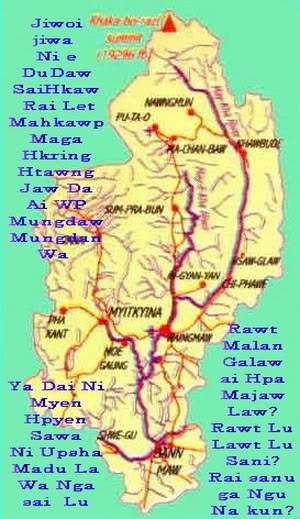The US decision to begin consultations with key international and regional partners to support the establishment of a UN Commission of Inquiry (COI) into the Burmese junta's alleged crimes against humanity and war crimes is a good move but it must be more than just symbolic.
Benjamin Chang, deputy spokesman of the US National Security Council, confirmed to The Irrawaddy that the US has began talks with a broad array of stakeholders, including the regional countries, about how to reach this goal.
This new move by the Obama administration is a timely action, which should have been taken long ago. The chief target is junta leader Snr-Gen Than Shwe, one of the world's most notorious dictators, who has totally and repeatedly ignored the international community's concerns about the systematic and massive human right violations committed by the junta over the past 22 years.
The move came after a bipartisan group of 32 influential senators led by California Sen Dianne Feinstein sent a letter to the Secretary of State Hillary Clinton on July 30 urging the administration to support a UN commission of inquiry.
Burmese democratic forces within Burma and in exile, including the exiled media, have consistently reported on the junta's human rights violations and the total immunity it has enjoyed since 1988.
The regime has enlisted child soldiers and destroyed thousands of villages in ethnic states, sending whole communities to seek safety in the jungle or in neighboring Thailand. Regime soldiers use rape as a weapon, commit extrajudicial and political killings and employ forced labor for military projects, using civilians as “minesweepers” in operations against armed ethnic groups.
Pro-regime paramilitary thugs have joined in actions to suppress dissent, particularly in the 2003 Depayin attack on Aung San Suu Kyi's motorcade and in the 2007 monk-led demonstrations.
At a regular session of the UN Human Rights Council in March, the UN Special Rapporteur for the Human Rights Situation in Burma, Tomas Ojea Quintana, formally urged the UN to consider the possibility of establishing a commission of inquiry into alleged crimes against humanity and war crimes committed by the regime.
In his report, Quintana said: “Given the gross and systematic nature of human rights violations in Myanmar [Burma] over a period of many years, and the lack of accountability, there is an indication that those human rights violations are the result of a state policy that involves authorities in the executive, military, and judiciary at all levels.”
Several UN reports since the early 1990s have documented a consistent pattern of human rights abuses by the junta in Burma. But, due to the lack of unity within the international community (the UN, US, EU and the Association of Southeast Asian Nations in particular) in seeking a common policy position, the plight of the Burmese people hasn't improved in more than two decades.
Taking into account past international failures in the application of sanctions and in engagement efforts, the Obama Administration reviewed and softened its Burma policy, seeking engagement while maintaining sanctions.
But the amended policy achieved nothing, leading now to a tougher stand, which the Obama Administration had always kept as an option.
Currently, Britain, Australia, the Czech Republic and Slovakia support the establishment of a commission of inquiry. The US now needs the support of countries like Canada and all EU members—plus, which seems unlikely, Burma's Asean partners.
The junta's crimes are not an internal affair. They are also the concern of the world's civilized community, which should take care of an oppressed Burmese public unable to make its own international appeal for justice.
Aug 19, 2010
Subscribe to:
Post Comments (Atom)
WUNPAWNG MUNGDAN SHANGLAWT HPUNG A NINGGAWN MUNGMASA
WUNPAWNG MUNGDAN SHANGLAWT HPUNG A NINGGAWN MUNGMASA
CHYE JU KABA SAI
Sa Du N'Gun Jaw La ai Majaw N'chying wa Chyeju Dum Ga ai,Yawng a Ntsa Wa Karai Kasang Kaw na N'Htum N'Wai ai Shaman Chye ju Tut e Hkam La Lu Nga mu Ga law







No comments:
Post a Comment